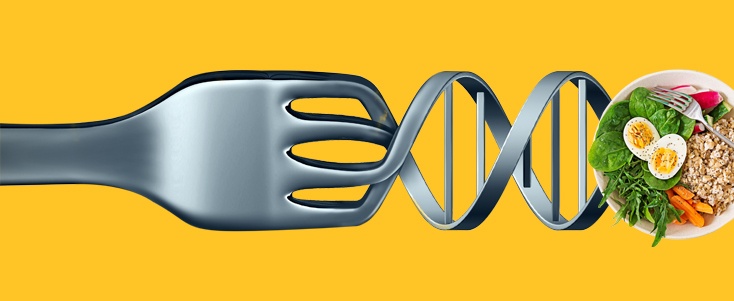The Genetic Blueprint: How Genes Impact Your Diet and Exercise Journey
The pursuit of a healthy lifestyle often involves dietary changes and regular exercise. However, what works genes wonders for one person might yield different results for another. This variation in response to diet and exercise interventions is not solely due to differences in willpower or motivation; genetics play a pivotal role. In this article, we will delve into the fascinating world of how genetics influence individual responses to diet and exercise and shed light on the emerging field of personalized nutrition and fitness.
Understanding Genetic Variability
Genetics is the study of how our genes, the segments of DNA that make up our genetic code, determine our traits and characteristics. These traits include physical attributes, susceptibility to diseases, and even our response to external factors like diet and exercise.
Human genetics is incredibly diverse. While we share a common genetic code, subtle variations in our DNA, known as single nucleotide polymorphisms (SNPs), can significantly influence how our bodies respond to various inputs.
Genetic Influence on Diet
- Taste Receptors: Genetic variations in taste receptors can impact food preferences. Some individuals may have heightened sensitivity to bitter tastes, affecting their choices in vegetables like broccoli or Brussels sprouts.
- Metabolism: Genes can determine how efficiently your body metabolizes macronutrients like carbohydrates, fats, and proteins. For example, people with certain gene variants may find it easier to maintain a healthy weight on a low-carb diet, while others might thrive on a low-fat diet.
- Hunger and Satiety: Genetic factors can influence hormones like ghrelin and leptin, which regulate hunger and fullness. Variations in these genes can affect how quickly you feel full after a meal and how soon you become hungry again.
- Nutrient Absorption: Genetic variations can impact the absorption of specific nutrients. For instance, some individuals may have a reduced ability to absorb vitamin B12 or folate, requiring dietary adjustments or supplementation.
Genetic Influence on Exercise
- Muscle Fiber Composition: Genetics plays a significant role in determining whether you have a predominance of fast-twitch or slow-twitch muscle fibers. This affects your athletic performance, endurance, and strength.
- Recovery: Some individuals possess genes that enable faster muscle recovery after exercise, allowing them to train more frequently and intensely.
- Injury Risk: Genetic factors can influence susceptibility to injuries, such as tendon or ligament injuries. Understanding these genetic markers can help tailor exercise programs to minimize injury risk.
- Response to Cardiovascular Exercise: Genetic variations can affect how your body responds to cardiovascular exercise. Some people may experience more significant improvements in cardiovascular fitness with a particular type of exercise, while others may respond better to alternative forms.
The Emergence of Personalized Nutrition and Fitness
Thanks to advances in genetic research and technology, we are now entering the era of personalized nutrition and fitness. By analyzing an individual’s genetic makeup, experts can provide tailored recommendations that optimize diet and exercise plans for better results. Here are some ways this is being applied:
- Genetic Testing: Companies offer DNA testing kits that provide insights into your genetic predispositions related to diet, exercise, and overall health. These tests can help you make more informed choices about your lifestyle.
- Nutrigenomics: Nutrigenomics is the study of how diet interacts with your genes. It explores how specific dietary choices can mitigate the impact of genetic factors on health and well-being.
- Exercise Prescriptions: Some fitness trainers and health professionals are integrating genetic information into exercise programs. By customizing workouts based on genetic predispositions, they aim to enhance fitness outcomes and reduce the risk of injury.
- Dietary Guidelines: Personalized nutrition recommendations can guide individuals toward diets that align with their genetic profile, potentially improving weight management, nutrient absorption, and overall health.
While genetics undeniably influence our responses to diet and exercise, it’s crucial to remember that genes are not destiny. They provide valuable information that can guide our choices, but lifestyle factors, such as consistent effort and adherence to a personalized plan, still play a significant role in achieving health and fitness goals.
Understanding the impact of genetics on your diet and exercise journey empowers you to make more informed decisions. Whether you’re aiming to lose weight, build muscle, or simply improve your overall health, embracing personalized approaches that consider your unique genetic makeup can be a game-changer on your path to a healthier you. As the field of personalized nutrition and fitness continues to evolve, we can anticipate more effective and individualized strategies to help us unlock our full potential for well-being.

